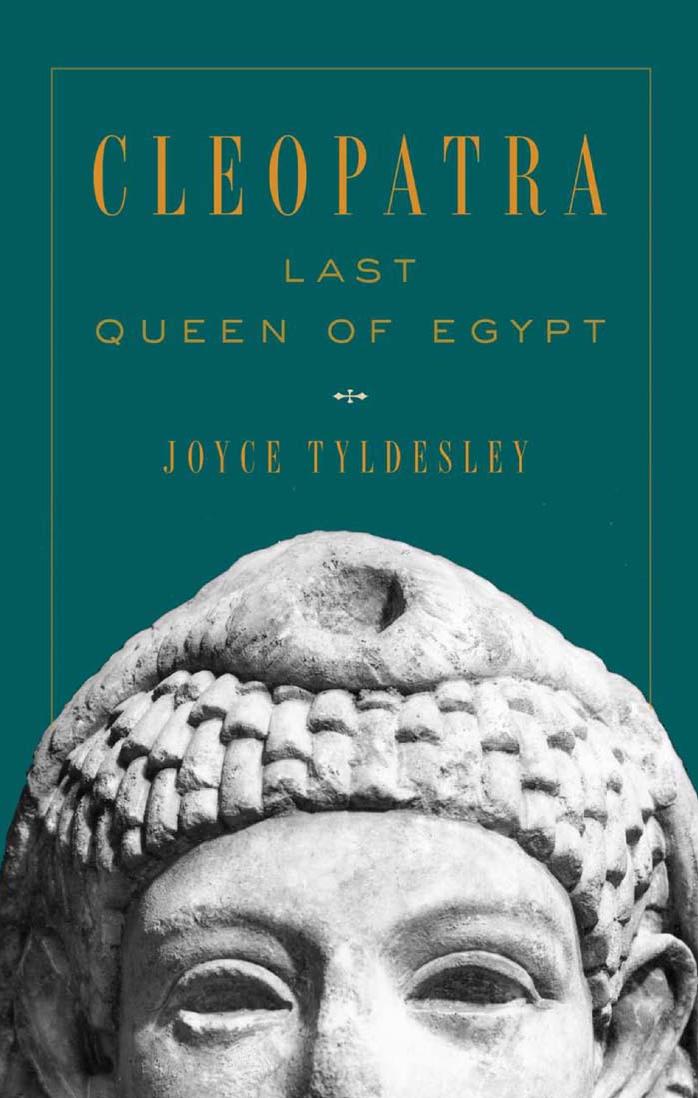Cleopatra: Last Queen of Egypt by Joyce A. Tyldesley

Author:Joyce A. Tyldesley [Tyldesley, Joyce A.]
Language: eng
Format: epub, mobi, pdf
Tags: Non-Fiction, History, Classics, Biography, (¯`'•.¸//(*_*)\\¸.•'´¯)
ISBN: 9780465009404
Publisher: Basic Books
Published: 2008-08-25T14:00:00+00:00
In spite of her economic problems, Cleopatra found herself in a more secure position than ever before. With both her brothers dead, her sister in exile and their supporters removed, she had absolute power and no obvious rival to form a rallying point for dissidents. Her coruler was an infant who, although invaluable for propaganda purposes, posed no threat to her authority. Caesarion, Ptolemy Caesar Theos Philopator Philometor (‘the Father-Loving, Mother-Loving God’), was proclaimed king of Egypt in Alexandria in the summer of 44.
In the wider Mediterranean world things were far from peaceful. The second triumvirate of Caesar’s friend Mark Antony, his great-nephew and heir Octavian and his supporter Marcus Aemilius Lepidus had united in their determination to capture Caesar’s principal assassins, Brutus and Cassius. They were intent on public revenge and Egypt – still, in spite of her suffering, the richest land in the eastern Mediterranean – was expected to provide practical help. Meanwhile, Brutus and Cassius, having realised that they had few friends in Rome, were looking to the eastern provinces for support and they, too, expected Egypt to help. When Cassius occupied Syria and formed an alliance with the powerful king of Parthia (whose extensive territories covered much of modern Iran and Iraq), Cleopatra was forced to take sides. She hesitated as long as she could, then committed herself by returning the four Roman legions, stationed in Egypt by Caesar in 48, to the triumvirs’ general, Publius Cornelius Dolabella, who was now in Syria. As an acknowledgement of her support, or as payment for services rendered, the triumvirs officially recognised Caesarion as coruler of Egypt. This decision would, it was hoped, persuade Cleopatra, mother of Caesar’s natural son, to continue to support Octavian, Caesar’s legal heir.
Cassius had been able to intercept and subvert Cleopatra’s Roman troops. They had changed sides without putting up a fight and were now stationed with his own legions along Egypt’s north-eastern border. When Cassius appealed directly to Cleopatra for aid – surely a prelude to invasion – she pleaded famine, plague and a manpower shortage that would prevent her from taking any direct part in the war. Meanwhile, Serapion, strategos or governor of Cyprus, had unilaterally declared his support for Cassius and had supplied him with ships. It seems that Serapion was planning to depose Cleopatra in favour of Arsinoë IV, who, currently living in the temple of Artemis at Ephesus, had maintained close contact with Cyprus. When, in 42, Brutus summoned Cassius and his troops to Smyrna, the threat of invasion lifted and Cleopatra breathed a huge sigh of relief.
Now openly on the side of the triumvirs, Cleopatra raised a fleet and set sail to join Octavian and Antony in Greece. Unfortunately (or perhaps fortunately), a mighty Mediterranean storm blew up, her ships sustained serious damage and Cleopatra herself fell ill, possibly with seasickness. As Egyptian wreckage washed up on the Greek shore, the badly battered fleet limped home to Alexandria. It is impossible not to suspect that this may have been another delaying tactic.
Download
Cleopatra: Last Queen of Egypt by Joyce A. Tyldesley.mobi
Cleopatra: Last Queen of Egypt by Joyce A. Tyldesley.pdf
This site does not store any files on its server. We only index and link to content provided by other sites. Please contact the content providers to delete copyright contents if any and email us, we'll remove relevant links or contents immediately.
| American Revolution | Civil War |
| US Presidents |
Fanny Burney by Claire Harman(26603)
Empire of the Sikhs by Patwant Singh(23086)
Out of India by Michael Foss(16853)
Leonardo da Vinci by Walter Isaacson(13337)
Small Great Things by Jodi Picoult(7144)
The Six Wives Of Henry VIII (WOMEN IN HISTORY) by Fraser Antonia(5516)
The Wind in My Hair by Masih Alinejad(5095)
A Higher Loyalty: Truth, Lies, and Leadership by James Comey(4964)
The Crown by Robert Lacey(4817)
The Lonely City by Olivia Laing(4802)
Millionaire: The Philanderer, Gambler, and Duelist Who Invented Modern Finance by Janet Gleeson(4479)
The Iron Duke by The Iron Duke(4360)
Papillon (English) by Henri Charrière(4275)
Sticky Fingers by Joe Hagan(4202)
Joan of Arc by Mary Gordon(4115)
Alive: The Story of the Andes Survivors by Piers Paul Read(4033)
Stalin by Stephen Kotkin(3969)
Aleister Crowley: The Biography by Tobias Churton(3640)
Ants Among Elephants by Sujatha Gidla(3467)
